 Bulgaria will hold parliamentary elections on 5 October, following the resignation of the country’s government in July. Ahead of the vote, Stuart Brown gives an overview of the background to the elections, each of the main parties and some of the opinion polling on the likely results.
Bulgaria will hold parliamentary elections on 5 October, following the resignation of the country’s government in July. Ahead of the vote, Stuart Brown gives an overview of the background to the elections, each of the main parties and some of the opinion polling on the likely results.
On Sunday, Bulgaria will hold parliamentary elections for the second time in less than 18 months. The elections were called after the Bulgarian government, led by Plamen Oresharski, resigned in July, with a caretaker administration fronted by Georgi Bliznashki taking over in the interim. Oresharski’s government had only entered office in May 2013, but had suffered a series of problems in its short time in power. This was the second time the Bulgarian government had resigned in the last two years, following the collapse of Boyko Borisov’s government in February 2013.
Background to the 2014 elections
The current period of political instability in Bulgaria can be traced back to a series of mass protests against Borisov’s government in 2013, chiefly over the issue of high electricity prices. Borisov, the leader of the largest centre-right party in Bulgaria, GERB, is a controversial figure, who has faced a number of allegations of corruption since winning power in 2009. As a result of the scale of the protests, he opted to stand down as Prime Minister, with new elections being called for May 2013.
Despite the protests, GERB still emerged from these elections as the largest party. Only three other parties gained enough support to overcome the four per cent electoral threshold used in Bulgarian elections: the country’s main centre-left party, the Bulgarian Socialist Party (the successor to the Bulgarian Communist Party); the Movement for Rights and Freedoms (DPS), which asserts a liberal platform and aims to represent the country’s Turkish minority; and the ultranationalist party Ataka (Attack). Chart 1 below shows the distribution of seats among these four parties after the 2013 elections.
Chart 1: Seats held by parties in the Bulgarian parliament after the 2013 elections
Note: There are 240 seats in Bulgaria’s parliament. The Bulgarian Socialist Party runs as part of an electoral alliance, the Coalition for Bulgaria, which includes several parties: the Bulgarian Socialist Party (BSP), Party of Bulgarian Social Democrats, Agrarian Union “Aleksandar Stamboliyski”, and Movement for Social Humanism. For more information on the other parties see: Citizens for European Development of Bulgaria (GERB); Movement for Rights and Freedoms (DPS); Ataka (Attack).
With 97 seats out of 240, GERB nevertheless lacked a majority and Borisov returned the mandate to form the next government, which instead passed to the Bulgarian Socialist Party. The government that emerged was essentially a technocratic one led by Oresharski – who had previously served as the country’s Finance Minister between 2005 and 2009 – under an agreement between the Bulgarian Socialist Party and the Movement for Rights and Freedoms. As these two parties only held 120 seats, they were forced to also rely on the support of Ataka to govern.
Almost as soon as Oresharski’s government had been announced, however, it began to be undermined by a series of problems. Demonstrations began against the government in May 2013, with the protests growing far larger in June after Delyan Peevski, a media magnate and member of DPS who has been described as “perhaps the most hated Bulgarian oligarch”, was elected as head of the country’s national security agency. The protests were so severe that parliament reversed the decision shortly afterwards, with Oresharski forced to apologise.
A number of further developments also served to undermine the government. First, the decision to push ahead with the construction of the South Stream gas pipeline, which is primarily financed by Russia, generated criticism from the EU, particularly in light of the on-going crisis in Ukraine. Under EU pressure, Oresharski announced that the construction of the pipeline would be suspended in June of this year, although there had been some doubts raised as to how much of the construction had actually been halted in practice.
Second, the Bulgarian Socialist Party received a disappointing result in the 2014 European Parliament elections in May, polling only 18.9 per cent, with GERB coming out comfortably on top with 30.4 per cent. Finally, the country was hit by a banking crisis linked again to Delyan Peevski. Peevski had a much publicised media dispute with Tsvetan Vassilev, the largest shareholder in the Corporate Commercial Bank – one of Bulgaria’s largest banks, which according to some sources services most state-related businesses. Peevski openly accused Vassilev of attempting to have him killed, while the bank suffered a bank run leading to a temporary closure in June. The Bulgarian Socialist Party’s leader, Sergey Stanishev (who served as Prime Minister from 2005 to 2009) announced that the cabinet should resign, which duly occurred in July, leading to the forthcoming elections.
The parties
Some 22 parties and 7 coalitions have registered to take part in the elections. However, only eight of these are expected to have a genuine chance of receiving more than the four per cent required to pass the country’s electoral threshold and gain representation in parliament. The Figure below provides an overview of each of the eight main parties/coalitions.
Figure: Overview of the eight main parties/coalitions in the 2014 Bulgarian elections
- GERB
- Bulgarian Socialist Party
- Movement for Rights and Freedoms
- Ataka
- Bulgaria Without Censorship
- Reformist Bloc
- Patriotic Front
- Alternative for Bulgarian Renaissance
 Leader: Boyko Borisov
Leader: Boyko Borisov
Ideology: Centre-right
European affiliation: European People’s Party
Seats at 2013 election: 97
Share of the vote at 2013 election: 30.5 per cent
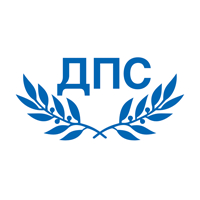 Leader: Lyutvi Mestan
Leader: Lyutvi Mestan
Ideology: Centrist/liberal
European affiliation: Alliance of Liberals and Democrats for Europe
Seats at 2013 election: 36
Share of the vote at 2013 election: 11.3 per cent
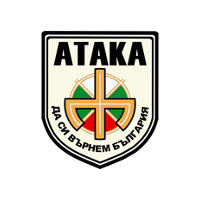 Leader: Volen Siderov
Leader: Volen Siderov
Ideology: Nationalist
European affiliation: N/A
Seats at 2013 election: 23
Share of the vote at 2013 election: 7.3 per cent
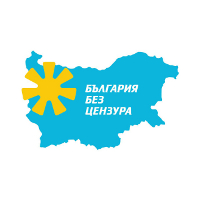 Leader: Nikolay Barekov
Leader: Nikolay Barekov
Ideology: Populist/anti-corruption
European affiliation: European Conservatives and Reformists
Seats at 2013 election: N/A
Share of the vote at 2013 election: N/A
Leader: Vacant
Ideology: Centre-right/centrist
European affiliation: European People’s Party
Seats at 2013 election: N/A
Share of the vote at 2013 election: N/A
Leaders: Krasimir Karakachanov and Valeri Simeonov
Ideology: Conservative/nationalist
European affiliation: European Conservatives and Reformists
Seats at 2013 election: N/A
Share of the vote at 2013 election: N/A
Leader: Georgi Parvanov
Ideology: Centre-left
European affiliation: N/A
Seats at 2013 election: N/A
Share of the vote at 2013 election: N/A
So who will win?
Opinion polling would suggest that GERB is in line to once again win the largest share of seats, with the BSP in second place. As Chart 2 below shows, a Gallup poll conducted on 22 September puts GERB at just under 36 per cent of the vote, which would be a substantial increase on the 30.5 per cent the party received in 2013. The BSP sits at only 18.3 per cent, down from the 26.6 per cent it gained in 2013.
Chart 2: Predicted vote shares in the 2014 Bulgarian parliamentary elections
Note: Figures are from a Gallup opinion poll on 22 September which asked the question: “If the elections for the National Assembly were happening now, which party would you vote for?” The Bulgarian Socialist Party runs as part of an electoral alliance, the Coalition for Bulgaria, which includes several parties: the Bulgarian Socialist Party (BSP), Party of Bulgarian Social Democrats, Agrarian Union “Aleksandar Stamboliyski”, and Movement for Social Humanism. For more information on the other parties see: Citizens for European Development of Bulgaria (GERB); Bulgaria Without Censorship; Movement for Rights and Freedoms (DPS); Alternative for Bulgarian Renaissance (ABV); Reformist Bloc; Ataka (Attack); Patriotic Front.
Perhaps the most important question in the election is not so much which party will gain the most seats, but how the coalition formation process will go following the vote. A key factor in this could be which of the smaller parties manage to pass the electoral threshold. Beyond the largest three parties, another three – Bulgaria Without Censorship, Reformist Bloc and Patriotic Front – sit above the threshold in Chart 2, but the margins are so small that there are few certainties over which parties will ultimately gain representation. Ataka currently looks set to follow up its poor performance in the European elections, where it gained less than three per cent of the vote, with another poor showing that could see its presence in the parliament wiped out.
Whatever the result, the immediate priorities of the new government to emerge from the elections will be straightforward. Several of the problems which undermined Oresharski’s government, most notably the Corporate Commercial Bank affair, remain unresolved and after a substantial period of political instability, involving the resignation of two governments in quick succession, the new administration will be keen to ensure history does not repeat itself a third time.
Please read our comments policy before commenting.
Note: This article gives the views of the author, and not the position of EUROPP – European Politics and Policy, nor of the London School of Economics. Featured image: Bulgarian Parliament, Credit: Todor Bozhinov (CC-BY-SA-3.0)
Shortened URL for this post: http://bit.ly/1oGqsc5
_________________________________
 Stuart Brown – LSE, Public Policy Group
Stuart Brown – LSE, Public Policy Group
Stuart Brown is the Managing Editor of EUROPP. After completing his PhD at the University of Strathclyde, he joined the LSE’s Public Policy Group in July 2012. His research interests include economic integration, regulatory processes and EU decision-making.
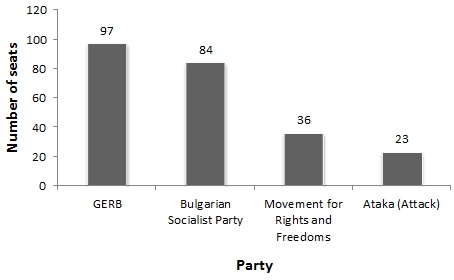
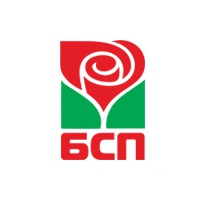 Leader: Mihail Mikov
Leader: Mihail Mikov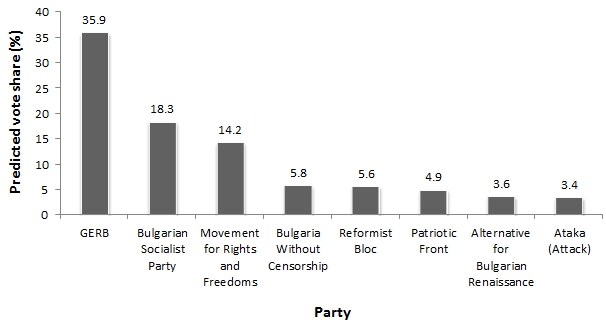







1 Comments